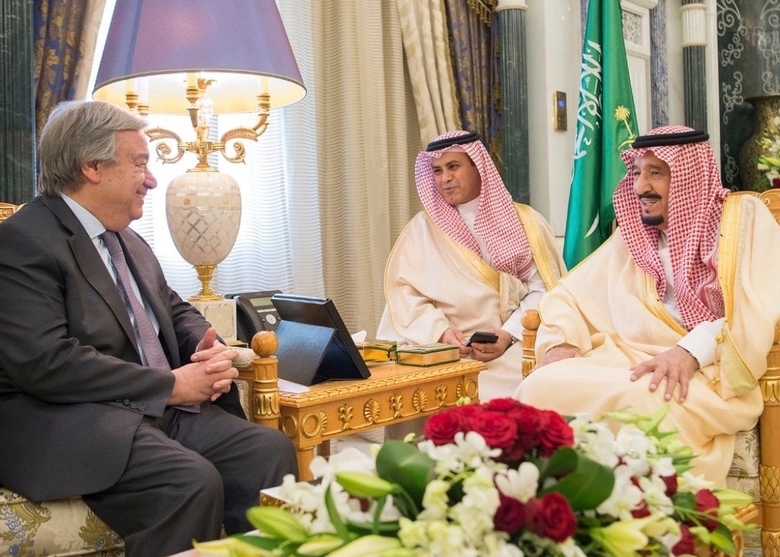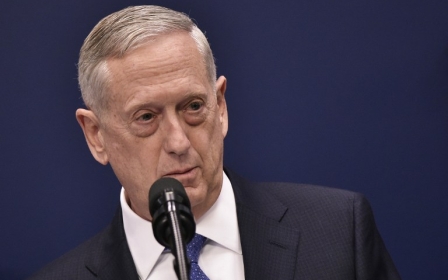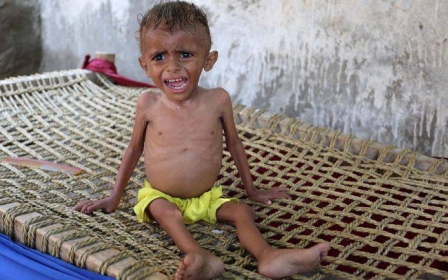'Islamophobia' fuels terrorism, UN chief tells Saudis

"Islamophobia" in parts of the world is fuelling terrorism, the head of the United Nations said on a visit to Saudi Arabia on Sunday, as anti-immigrant sentiment rises in some countries.
UN Secretary-General Antonio Guterres made the comment to reporters after talks with Saudi King Salman, Crown Prince and Interior Minister Mohammed bin Nayef, and Deputy Crown Prince Mohammed bin Salman.
"One of the things that fuel terrorism is the expression in some parts of the world of Islamophobic feelings and Islamophobic policies and Islamophobic hate speeches," Guterres said at a joint news conference with Saudi Foreign Minister Adel al-Jubeir.
"This is sometimes the best support that Daesh can have to make its own propaganda," Guterres said, using an Arabic acronym for the Islamic State (IS) group of Sunni militants in Syria and Iraq.
The militant group has also claimed deadly attacks in Saudi Arabia and in Europe.
Anti-immigration politicians including France's Marine Le Pen, have seen their popularity rise after an influx to Europe of migrants, many of them Muslims fleeing wars in Syria and elsewhere.
US President Donald Trump issued an order in late January that denied entry to all refugees for 120 days.
It also blocked travellers from Iran, Iraq, Libya, Somalia, Sudan, Syria and Yemen for 90 days. Refugees from Syria were blocked indefinitely.
But the order has faced obstacles and on Thursday an appellate court decided unanimously to maintain a block on Trump's order.
Syria's conflict has created five million refugees and killed more than 310,000 people since it began with anti-government protests in March 2011.
Guterres said: "We will never be successful in fighting terrorism in Syria if an inclusive political solution is not found for the Syrian people."
A new round of UN-sponsored peace talks is scheduled for 20 February in Geneva.
Guterres arrived in Saudi Arabia from Turkey and is to be in Dubai on Monday for the World Government Summit during his regional tour.
Guteres backs Yemen envoy
Guterres also said the UN envoy to Yemen had his full support, days after Yemen's Houthi group asked him not to renew the diplomat's term because of what it said was bias against the Iranian-aligned movement.
"Our envoy has my full support and I believe that he is doing impartial work, that he is doing it in a very professional way and independently of what other people may think, he has my full support," Guterres said.
He appealed to the combatants in Yemen's almost two-year-old war not to exploit the delivery of humanitarian aid, adding that any such action was to be condemned.
A top official of the Houthi-led government that controls Yemen's capital called on the world body on Friday to not renew the term of Ismail Ould Cheikh Ahmed, saying he had shown "lack of neutrality" and sympathy for a Saudi-led coalition that is fighting to reinstate Yemen's internationally-recognised government.
Cheikh Ahmed, who has served as UN Yemen envoy since April 2015, has brokered several ceasefires in a conflict that has killed more than 10,000 people. The truces have tended to flounder within days.
At the news conference, Jubeir said he expected support for rebels in Syria to continue despite the fall of Aleppo to the Syrian government in December, but noted that any decision would be made as part of the US-led international coalition.
"We believe that the moderate opposition has an important role to play. We believe that they need to be able to defend themselves, as well as to fight against Daesh and al-Qaeda," he said.
Jubeir also described the Saudi-US relationship as "excellent," continuing to signal warm ties with the new administration of Trump after visiting Washington and New York earlier this month.
"We see eye to eye when it comes to the situation in Lebanon, in Syria, in Iraq, in Yemen, in Libya. We see eye to eye when it comes to the danger of Iranian interference in the affairs of other countries," he said.
Jubeir's comments came two days after CIA chief Mike Pompeo made the first visit to Saudi Arabia by a Trump administration cabinet member.
Pompeo came to Riyadh to award Crown Prince and Interior Minister Mohammed bin Nayef the George Tenet medal, an award for counter-terrorism work named after a former CIA chief, Saudi media reported.
Jubeir declined to discuss the agenda of Pompeo's visit, but said "it shouldn't come as a surprise," given extensive security ties between the two countries.
Middle East Eye propose une couverture et une analyse indépendantes et incomparables du Moyen-Orient, de l’Afrique du Nord et d’autres régions du monde. Pour en savoir plus sur la reprise de ce contenu et les frais qui s’appliquent, veuillez remplir ce formulaire [en anglais]. Pour en savoir plus sur MEE, cliquez ici [en anglais].




